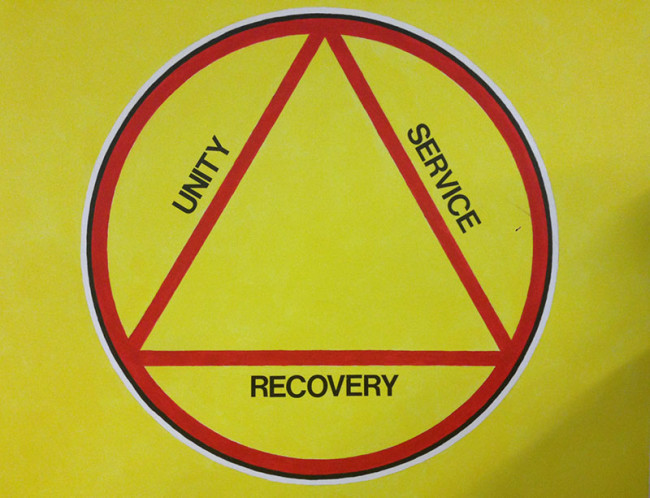
With a water bottle in hand, SMU student Shannon Delehanty arrived at the Boulevard one weekend in 2011 ready to tailgate. But for Delehanty, this wasn’t the ordinary tailgating experience she was accustomed to. Striding through the crowd with confidence, she made her way to the fraternity tents. After politely refusing a beer, she was shocked at the response given.
“‘You don’t drink? Wow. How do you have fun at the boulevard?’” she says a student asked her.
After this encounter, Delehanty, who is now a senior, says she realized being sober on a college campus wasn’t the ‘coolest’ thing to do. Despite this, she says, “I was determined to make it acceptable for others not to be afraid to do the same thing. If I wanted to be successful at SMU, I knew I had to live my life this way no matter how hard it may be.”
It’s hard to deny that navigating college life presents challenges. These challenges are magnified for students like Delehanty who are in recovery from alcohol and drug addiction. Without a strong support program and recovery community on college campuses, it can be easy for these students to revert back to their old ways. This is detrimental and can sometimes be deadly. While some tools do exist at SMU for recovered students and those trying to get sober, according to a recovery expert, a much stronger program and tight knit community must be constructed for the university to keep up with the rapidly growing collegiate recovery movement.
“If students initiated it, SMU’s administration would provide the necessary money and infrastructure for a recovery program,” Jan McCutchin, a counselor for SMU’s Alcohol and Drug Abuse Prevention program, said.
But as of now, no one has stepped up to the plate. If recovered students approached the school and requested accommodations, SMU would be required under the Americans with Disabilities Act to provide them, so long as the request isn’t, as the law states, an “undue burden.”
Texas Tech’s Center for the Study of Addiction and Recovery has become the standard for schools that want to establish programs on their campuses. This is due to the program’s high rate of sobriety and its rapid expansion.
The public university provides a dedicated building exclusively for recovered students. At any hour of the day or night, they can go shoot pool, hang out or do work in one of the study pods. Additionally, the school has a full-time academic advisor to help place these students in the same classes, which facilitates drug free study groups and a strong sense of community among recovered students.
Texas Tech is not the only school to provide such accommodations. Vanderbilt and the University of Texas at Austin, as well as many others, also provide a dedicated space for recovered students to use to study, socialize and hold 12-step meetings.
“Students who don’t have a support system may suffer from stress or depression and tend to drink more heavily and relapse more often than those who don’t,” Lisa Joyner, the assistant director of Health Education at SMU, said.
Providing accommodations for recovered students is not only the right thing to do, it’s a good business decision for universities.
“A recovery program is a huge recruitment and retention tool,” McCutchin said.
Based on a formula, which is publically available through Texas Tech’s Collegiate Recovery Community’s curriculum for retention of students in recovery, a school of SMU’s size could retain approximately $3 million annually in revenue from tuition and fees if a strong recovery program were offered.
This curriculum outlines exactly what must be done to establish an effective community of recovery on a college campus.
However, according to McCutchin, one of the biggest problems with establishing a strong community among recovered students at SMU is getting them to recognize they need to step forward and organize.
“Anna,” a graduate student at SMU who wishes to maintain her anonymity, gave the reason students are reluctant to come forth and unite.
“Everyone knows everyone,” she said. “I think that’s the biggest problem with getting students to come out of the shadows.”
During her undergraduate years at the University of Texas at Austin, “Anna” appreciated the strong sense of community among recovered students and the resources provided. She knew many high school students who chose to attend the University of Texas at Austin for its recovery program, community and accommodations. Based on her undergraduate experience, she also emphasized the importance and potential benefits of a dedicated space for recovery at SMU.
Delehanty offers this piece of wisdom to students who are still battling with drug and alcohol addiction.
“My advice to individuals at SMU who are still struggling is to just try anything that is suggested to them. If you don’t try, you will never know if the program truly works,” she said.
If you are struggling with addiction, please contact Jan McCutchin. She will provide you with the information needed so you too can recover. Her email is jmccutch@smu.edu.








